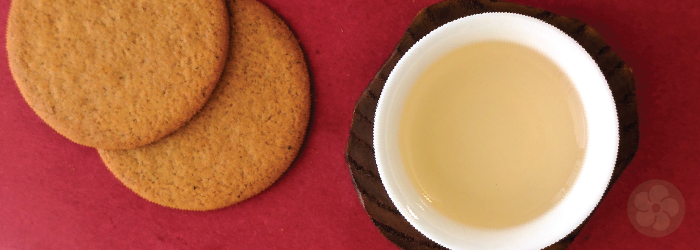Which Teas are Naturally Sweet?

Most of the aroma and flavor we perceive from a tea comes from a huge variety of ‘volatile compounds’ that vary from leaf to leaf. It’s practically impossible to trace any particular flavor to a specific compound. But the natural sweetness of tea comes from the very building blocks of the plant itself: carbohydrates.
All plants produce carbohydrates during photosynthesis. Carbohydrates include fibrous materials like cellulose, which give the plant structure, and natural sugars, like glucose and fructose, for energy. All together, these components make up about a third of of the solid matter in a fresh, unprocessed tea leaf, but most are not water soluble. In a brewed cup of tea, the average amount of carbohydrates extracted is only about 0.4 grams.

Most water soluble carbohydrates are the natural sugars stored in the leaf for energy. This is what makes some teas naturally sweet. As the plant photosynthesizes, it builds reserves of these sugars to power growth. While dormant, in the winter, the mature leaves store carbohydrates to power new growth in the spring.
When the weather begins to warm in the spring, new shoots draw on these stored sugars for energy until they are large enough to photosynthesize. Later in the growing season, as the leaves get larger and produce excess carbohydrates, the plant transfers these sugars away from the leaf, into the roots.
Therefore, the sweetest leaves of any plant are generally the first ones picked in spring. For example, imagine the difference between a baby spinach or arugula and the mature leaves of the same plant. The effect is particularly obvious in teas that are minimally processed, like green teas and white teas. Without oxidation, the flavor compounds in the leaf are not dramatically transformed, and natural sweetness (or lack thereof) is evident.

Teas harvested late in the season tend to be the ones with the lowest concentration of natural sugars and the most obvious bitter flavors. Similarly, teas grown in a hot climate that grow steadily in all seasons never have a chance to stockpile sugars in the roots. While the plant may produce more leaves overall, each leaf has fewer flavor compounds and carbohydrates because the plant is constantly expending its resources to maintain constant growth.
To get maximum sweetness from any tea, check out this list of brewing tips. And if you’d like to investigate the difference in flavor for yourself, we recommend a side-by-side tasting within a single category. Try comparing our Ming Qian Dragonwell, Panan to Pre-Rain Dragonwell, or taste Golden Monkey, First Pick along with Golden Monkey. Let us know if you've tried a taste test like this in the comments!
Sign up for our newsletter to get blog updates in your inbox!



Comments on this post (2)
Hello Cassie,
Thanks for your question! We don’t typically have trouble with FDA registration at the farms we work with. Usually, this is because we have long standing relationships and our suppliers are prepared for US export. When we work with new farms, we invest the time into setting up all necessary documentation so that we can build a long term relationship for the future. Finally, the process for FDA registration is fairly simple, especially when compared to organic certification.
— Amy Covey
Hi I just read your fascinating blog post about organic tea certification and why it may not be practical or even helpful for small-scale farms in Taiwan and China. It got me to wondering if you have experienced any difficulties in getting smaller tea growers to register with the FDA? (See https://help.cbp.gov/app/answers/detail/a_id/337/related/1) Appreciate any light you can shed on this!
Cassie
— Cassie